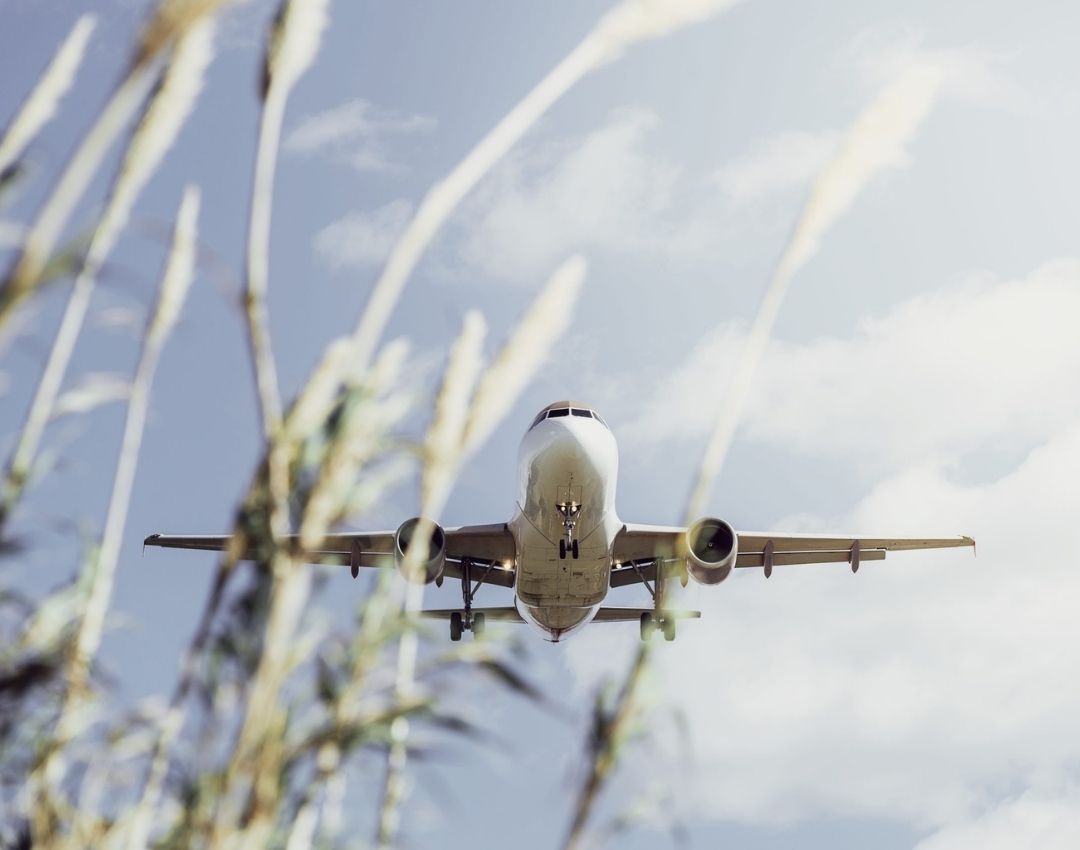As the travel industry looks to reduce its carbon footprint and its impact on the environment, does the aviation industry have a sustainable alternative to fossil jet fuel? The answer is a resounding yes. Airlines have already started to use Sustainable Aviation Fuel (SAF).
The International Air Transport Association committed to Fly Net Zero by 2050, predicting that SAF could contribute around 65% of the reduction in emissions needed by aviation to reach this goal. Many airlines – from British Airways and Virgin Atlantic to American Airlines and United Airlines – have committed to investing in SAF.
Reed & Mackay was one of the world’s first travel management companies to give customers the chance to purchase SAF directly from the world’s largest producer, Neste, to reduce the greenhouse gas emissions from their air travel.
Interested in learning more about SAF? Our partner Neste shares its insights on the topic.

What is Sustainable Aviation Fuel?
SAF is a next generation aviation fuel that can replace fossil aviation fuel. Neste’s SAF is made from 100% renewable waste and residue raw materials, such as used cooking oil. In its neat form, and over the lifecycle, Neste MY Sustainable Aviation FuelTM (Neste MY SAF) reduces greenhouse gas emissions by up to 80%* over the fuel’s life cycle, compared to using fossil jet fuel use.
*When used in neat form (i.e. unblended) and calculated with established life cycle assessment (LCA) methodologies, such as CORSIA methodology.
What are the benefits of SAF?
Neste MY SAF offers the carbon emission-reducing benefits of SAF directly to the end customer by offering tCO2e (total carbon dioxide) emission reduction, rather than only the physical product.
Businesses buying SAF this way are achieving a reportable emission reduction and will be able to report on how they contribute to the reduction of global warming. Plus, by significantly reducing its air travel-related emissions, businesses can contribute to reportable emission reductions with Science Based Target initiatives (SBTi).
As a TMC, Reed & Mackay plays a key role in clients’ value chain and helps them make emissions reductions. Reed & Mackay has also made a commitment to be a Net Zero business by 2045.
How does SAF work as part of a business travel programme?
For many businesses, air travel is a significant, but a hard-to-reduce, portion of their greenhouse gases (GHG) footprint. SAF is currently one of the most credible and effective solutions in the aviation sector for reducing air travel-related emissions.
With its Neste MY SAF for Business solution, Neste provides businesses with an easy-to-use path to reportable emission reductions from corporate air travel. The customer buys SAF from Neste and pays the price difference with fossil jet fuel and can claim the resulting reduction in emissions in their Science Based Targets initiative (SBTi) Scope 3 accounting (Scope 3 takes into account all the emissions a business indirectly generates; this includes business travel).
Clients will receive in-depth reporting, including details on SAF production, delivery, fuel burn and emission reduction, which can be used for their own sustainability reports.
Neste – as a fuel producer – offers an effective solution for organisations’ business travel programmes due to its multi-airline offering. Customers can sign one contract for SAF that accounts for all their air travel across multiple airlines.
It’s a particularly attractive one-stop-shop solution for multinational companies using multiple airlines in their travel programme, who are looking to achieve maximised reportable emission reduction – under SBTi – by purchasing SAF that will be used by Neste’s partner airlines.
Neste’s solution follows the latest SBTi Aviation guidance to deliver emission reduction in the client’s own value chain.

How can SAF help businesses on their sustainability journey?
SAF is currently one of the most credible and effective solutions for businesses to reduce their air travel-related emissions. SBTi expects companies to report progress annually. And, for users of airlines, such as business travellers, SBTi has set out specific requirements.
These include obtaining a reasonable proof of fuel consumption and proving a clear chain-of-custody for the SAF consumption. SBTi also requires companies to show environmental benefits associated with SAF and the need to use SAF to meet targets in volumes consumed.
Companies can report emission reductions from the use of SAF, if SAF purchase fulfils SBTi’s prerequisites. Neste’s solution ticks all the necessary boxes.
What future technologies is Neste looking at for SAF?
Currently, SAF is produced from renewable raw materials, such as used cooking oil and animal fat waste. It’s likely these will continue to be used, yet for SAF to reach its full potential, the technology and raw materials used need to go further.
In the near future (around five to 10 years), SAF could be produced from raw materials such as municipal solid waste and forestry and agricultural residues. From ten years onwards, SAF could be produced from algae; power-to-liquid fuels and carbon captured from the air.
Does SAF still face challenges?
Awareness and production needs to grow. Governments are now considering how they can establish SAF policy frameworks to stimulate demand. For example, the UK government has published a SAF Mandate that secures demand for SAF. However, across the globe the ambition levels are not as high as they could be. It’s not enough to rely on just these as they don’t tackle the whole problem. Business can play a key role in increasing SAF production by generating voluntary demand.
SAF is currently more expensive than fossil jet fuel. But the cost of fossil fuel doesn’t include the cost of carbon or climate impact. Over time, with production growing and economies of scale, the price of SAF might come down but, for now, SAF is one of the only viable solutions to reduce air travel emissions.
Find out more about how to make your corporate travel programme more sustainable.
Get in touch
Mail [email protected] to discuss all your corporate travel and event management needs.




